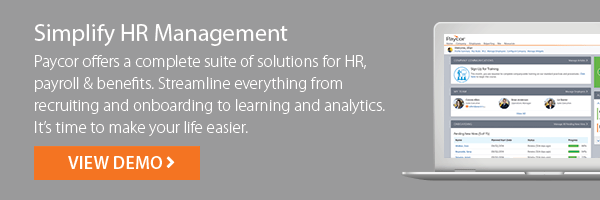A union shop is a place of employment that requires its employees to join a union. At these companies, employees are required to belong to or pay dues to the union as a condition of retaining employment. Union shops are permitted only in states that have not passed “right-to-work” laws prohibiting practices that force employees to join or pay dues or fees to a labor union.
The incoming Biden administration promises to strengthen union rights, incentivize unionization and encourage collective bargaining. Whether these reforms make it to reality is up for debate, but all employers need to understand the potential implications.
What’s the Difference between Closed Shop, Union Shop, Open Shop, Agency Shop and Right-to-Work?
- Closed Shop
A company that only employs union members and requires them to secure and maintain union membership as a condition of employment. - Union Shop
A company that doesn’t require employees to join a union in order to be hired, but they must join within 30 days of employment. - Open Shop
A company that may have a union, but hires both union and non-union employees, and union membership is not a requirement for continued employment. - Agency Shop
A company that has a union, but hires both union and non-union employees, and union membership is not a requirement for continued employment; however, non-union employees have to pay a fee to cover collective bargaining costs. - Right-to-Work
State laws that ban companies from demanding that their employees pay union dues or fees as a condition of employment.
The states that have enacted right-to-work laws are:
- Alabama
- Arizona
- Arkansas
- Florida
- Georgia
- Idaho
- Indiana
- Iowa
- Kansas
- Kentucky
- Louisiana
- Michigan
- Mississippi
- Nebraska
- Nevada
- North Carolina
- North Dakota
- Oklahoma
- South Carolina
- South Dakota
- Tennessee
- Texas
- Utah
- Virginia
- Wisconsin
- Wyoming
Are Labor Unions Good or Bad for Employers?
The answer is complicated. At the core, unions are solely focused on negotiating the best wages & benefits for their members and employers just want high productivity from their workers. It turns out these goals aren’t always at odds with each other. Labor unions bring certain advantages and disadvantages to a company. Let’s break down the pros and cons.
Pros of Union Shops:
- Stable Workforce
Labor unions can provide a stable and well-trained workforce. Often, unions have their own programs to train employees in their trades, taking the burden off employers. With properly trained employees, you’ll have a safer work environment, resulting in fewer days lost due to work-related injuries or illnesses. Keep in mind you’ll have union assurance that more workers will be available if needed. - Predictable Labor Costs
Since union workers operate under labor contracts, employers can more accurately predict labor costs. This allows employers to focus on more strategic initiatives like expanding operations, investing in new product development and controlling labor costs.
Cons of Union Shops:
- Unengaged Workforce
Unions base raises and promotions on seniority, not performance. This type of work environment discourages employees from going above and beyond to improve processes, grow professionally and learn new skills. When an employee has no incentives to do a better job they’ll remain stagnant and unengaged. - Rewarding Employees is Difficult
Many employers offer incentive plans for high performing employees. The goal is to encourage struggling employees to become more productive, so they too can reap big rewards. Unfortunately, union contracts prevent incentive plans, making it difficult to reward your top performers and motivate your workforce.
Collective Bargaining Agreements and the Union Shop
A Collective Bargaining Agreement (CBA) sets the terms and conditions of employment in a union shop, such as:
- Wages
- Hours and working conditions
- Benefits
- Grievance and arbitration procedures
- Strike limitations
- Union’s rights and responsibilities
- Company’s rights and responsibilities
Collective bargaining agreements run for a specified timeframe as outlined in the agreement. Unlike a regular contract, the parameters of the conditions don’t end upon the agreement’s expiration. As long as the majority of employees still support the union, union representatives and management are required to bargain in good faith for a new CBA. The terms of the expired CBA continue until a new one is reached.
Manufacturers trust Paycor because we provide the technology + expertise to help them separate from the competition and overcome tough challenges like processing union payroll.
Work with the experts.
Making sure that hours worked, and vacation time taken are appropriately tracked is a necessary task for HR. But it’s even more important for companies that have a significant union labor presence. Don’t put your business at risk. Our time solution can track this data and use it to create quick and accurate reports as well as integrate with your payroll system making every payday a snap.










